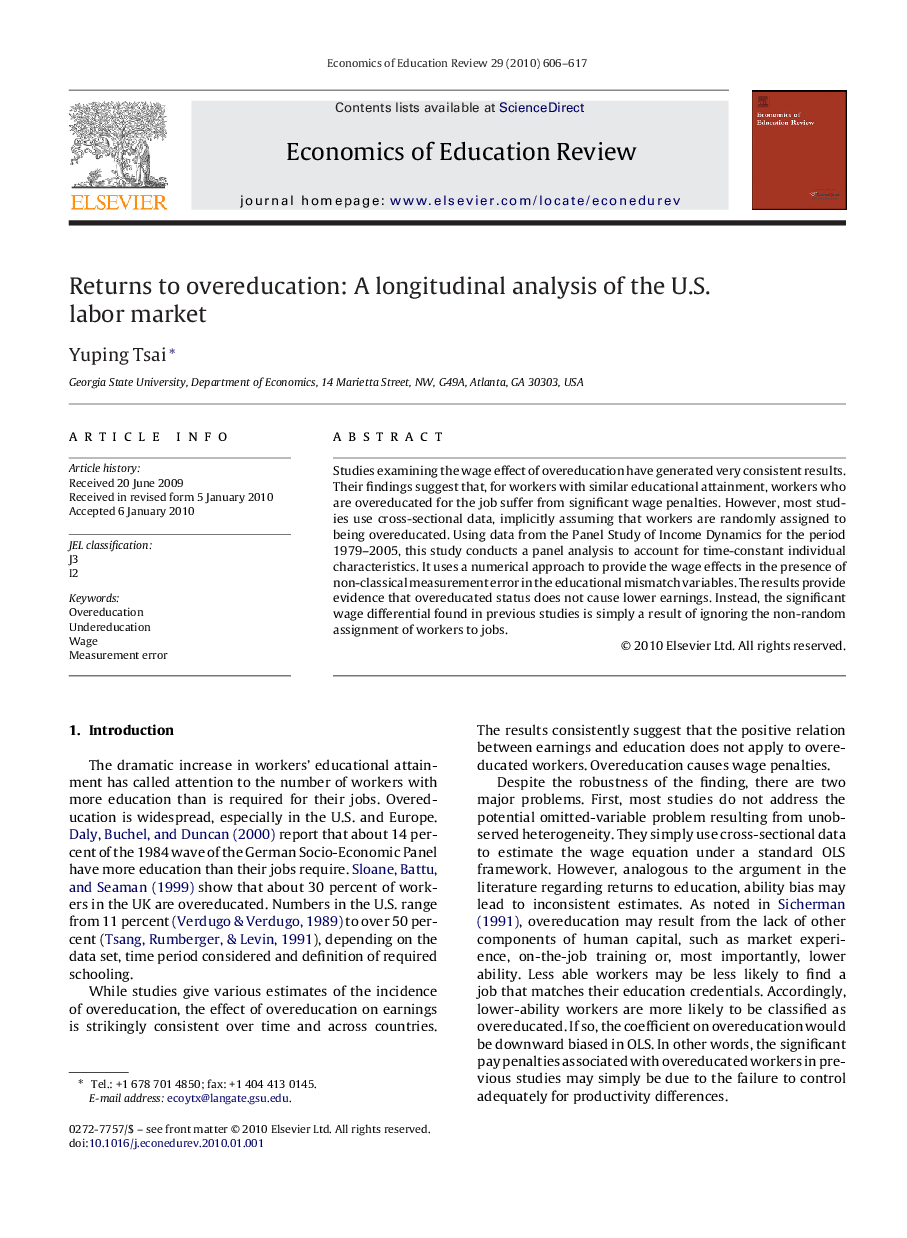| Article ID | Journal | Published Year | Pages | File Type |
|---|---|---|---|---|
| 354640 | Economics of Education Review | 2010 | 12 Pages |
Studies examining the wage effect of overeducation have generated very consistent results. Their findings suggest that, for workers with similar educational attainment, workers who are overeducated for the job suffer from significant wage penalties. However, most studies use cross-sectional data, implicitly assuming that workers are randomly assigned to being overeducated. Using data from the Panel Study of Income Dynamics for the period 1979–2005, this study conducts a panel analysis to account for time-constant individual characteristics. It uses a numerical approach to provide the wage effects in the presence of non-classical measurement error in the educational mismatch variables. The results provide evidence that overeducated status does not cause lower earnings. Instead, the significant wage differential found in previous studies is simply a result of ignoring the non-random assignment of workers to jobs.
